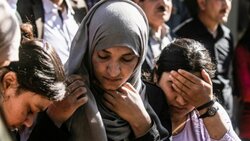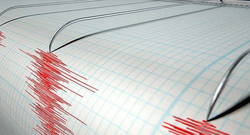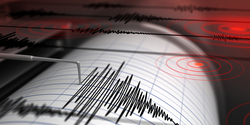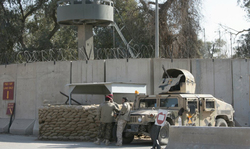Iraq's lingering landmine menace: ongoing struggle for safety and stability
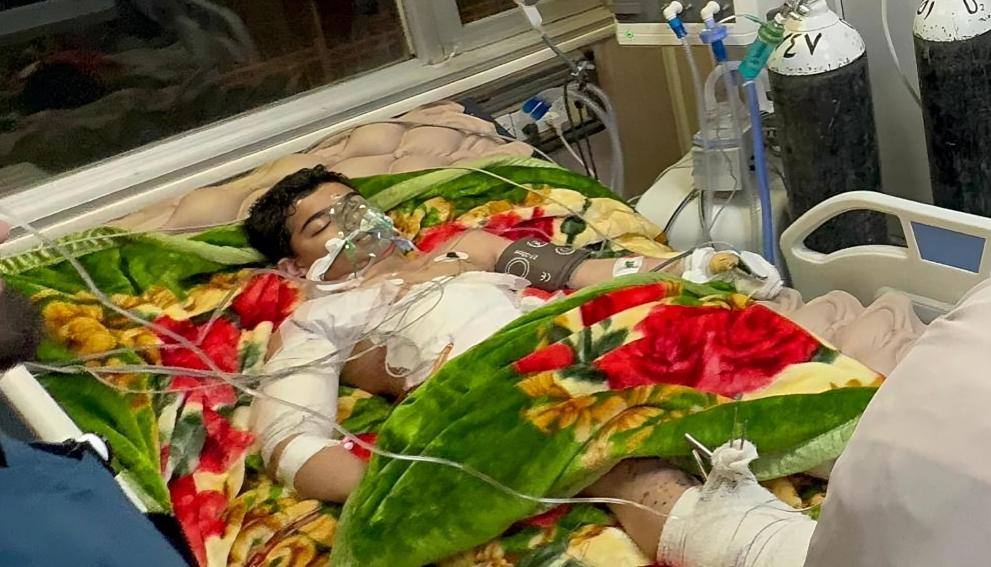
Shafaq News / Landmines in Iraq has been a longstanding issue, originating from conflicts such as the Iran-Iraq War and the Gulf War, where both conventional and improvised landmines were extensively deployed.
The aftermath of these conflicts, coupled with ongoing internal strife and insurgencies, has led to widespread contamination of landmines and explosive remnants of war (ERW) throughout the country.
Militant groups like ISIS further exacerbated the problem by deploying landmines and improvised explosive devices (IEDs) to defend territory and target civilians and military personnel.
Efforts to clear landmines and ERW have been ongoing but challenging, with various international organizations engaged in clearance operations to mitigate the humanitarian impact, including casualties among civilians and hindrances to socio-economic development.
The presence of landmines continues to obstruct access to essential services and land for agriculture and infrastructure development, necessitating sustained efforts in clearance, risk education, victim assistance, and advocacy for international treaties such as the Mine Ban Treaty.
In a heart-wrenching turn of events, Aziz Shahatha Issa, a native-born in 1980, tragically lost his life while his 12-year-old son, Mustafa, suffered injuries in a devastating landmine explosion on the outskirts of Mount Bawr in the Lilan district, southeast of Kirkuk governorate.
This harrowing incident unfolded amidst a springtime picnic, a customary practice of Kirkuk's culture, where families gather to revel in the joys of nature from dawn till dusk before retreating home.
Little did Aziz Shahatha Issa anticipate that this idyllic excursion would swiftly morph into a somber affair, leaving his family enveloped in grief with no reprieve, having packed their belongings with eager anticipation only to be confronted with an unfathomable tragedy.
The landmine responsible for this loss was strategically planted in the buffer zone between Kirkuk and the Kurdistan Region as a defensive line, known as Line 36, during the reign of Saddam Hussein.
This stretch of land, once a warzone, now stands as a silent sentinel, harboring latent dangers that continue to haunt the local populace.
Despite the passage of time and the gradual healing of wounds inflicted by past conflicts, the specter of danger still looms large over the Region, casting a shadow of fear and uncertainty.
The remnants of Saddam's regime, coupled with the lingering threat posed by IEDs left behind by ISIS, serve as reminders of the fragility of peace in these war-torn lands.
Despite the tireless efforts of security forces and the Civil Defense Directorate to mitigate these risks and safeguard civilians, tragic incidents such as this serve as stark reminders of the dangerous reality confronting residents daily.
According to a security source in the Lilan Police, "The incident resulted in the death of Aziz Shahatha Issa and the injury of his 12-year-old son Mustafa, who is currently hospitalized at Azadi Hospital."
Meanwhile, the official spokesperson for the Kirkuk Civil Defense Directorate, Major Qais Abdul Razzaq, reiterated that "explosives still threaten the lives of civilians. At the beginning of the spring season, the Civil Defense Directorate warned against entering certain important areas because there may be war remnants that could explode, as in today's incident."
"People who venture into the city's outskirts should stay away from foreign objects and prohibited areas for their safety from any harm that may occur to them."
He emphasized that "the Civil Defense Directorate has conducted comprehensive surveys in all districts and outskirts of Kirkuk and recorded the safety of the majority of those areas, but there are sites of the former army or abandoned war remnants, and tampering with them could lead to explosions and human losses."
Meanwhile, Hamed Ali, an explosives expert and retired officer, told Shafaq News Agency, "Kirkuk, being close to the governorates in the Kurdistan Region, had explosives planted in locations by the former Iraqi army, which planted mines in the border strip between Kirkuk and the Region's cities. Additionally, ISIS left behind many war remnants that occasionally explode in the outskirts of Kirkuk."
He revealed that "the past three years have seen a decline in the number of injuries from explosive remnants in Kirkuk, especially after eliminating ISIS. Kirkuk recorded about 12 incidents due to explosive remnants, the lowest number compared to the days of ISIS when Kirkuk annually recorded about 30 explosions, resulting in civilian casualties."
"ISIS planted along the line between Kirkuk and its controlled areas, deliberately laying mines to prevent civilians from leaving those areas towards regions under federal government control, such as Kirkuk."
"Kirkuk, like other governorates, suffered its share of mines, although not to the extent seen in cities bordering Iran like Wasit, Diyala, Basra, Maysan, and others in the Kurdistan and elsewhere."
"These areas witnessed extensive mine planting aimed at targeting the armies of both sides. However, this time, attention is drawn to governorates like Kirkuk, Nineveh, Diyala, al-Anbar, and Saladin."
A report by the international organization "Humanity and Inclusion," concerned with providing safety for the affected worldwide, revealed that Iraqis 8,500,000 are living amidst dangerous and deadly areas containing explosive remnants of war and IEDs.
The international organization stated in its report that the cost of clearing mines from some areas, especially those containing rubble like Mosul, is six times higher than the cost of mine clearance in flat areas. This requires Iraq to allocate approximately one hundred and eighty million dollars annually, including fifty million dollars for Mosul.
As Iraq endeavors to confront the legacy of its turbulent past, the country needs solidarity from the international community to solve this problem.
